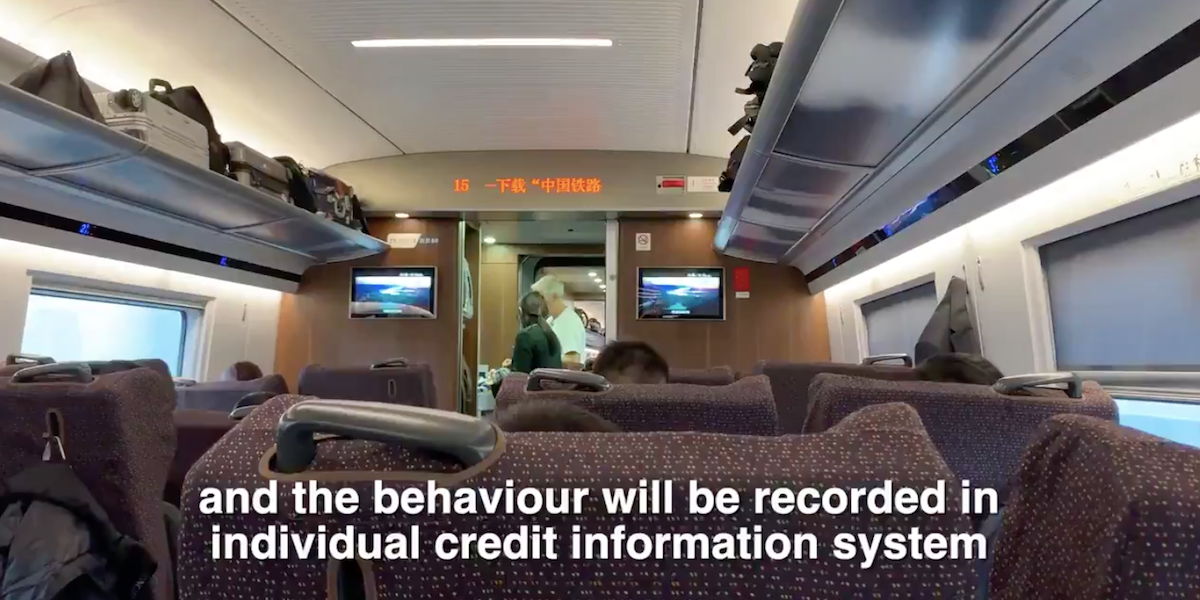- China is rolling out a nationwide social credit system, where people will be ranked, rewarded, and punished for their behavior.
- Journalist James O’Malley posted a video from a bullet train from Beijing to Shanghai that shows what a future under the social credit system could look like.
- A female voice can be heard over the intercom warning people not to misbehave, or else their “behavior will be recorded in individual credit information system.”
- Here’s what you can do wrong, and the embarrassing and demeaning ways China can punish you under the social credit system.
A chilling announcement on a train from Beijing to Shanghai shows how the future of China could be dominated by people living in fear of a nationwide social credit system, which will rank all its 1.4 billion citizens based on their behavior.
The social credit system is basically an extension of a person’s financial credit score, which will be mandatory nationwide in 2020. But instead of just tracking financial performance, people will also be ranked on their “trustworthiness.”
Freelance journalist James O’Malley on Monday posted a video taken inside a bullet train between Beijing and Shanghai.
In the video a female voice announced over the intercom in English that people who travel without a ticket or "behave disorderly" - like smoking in public places - would be "punished according to regulations, and the behavior will be recorded in individual credit information system."
Watch a video of the announcement here:
Here's a dystopian vision of the future: A real announcement I recorded on the Beijing-Shanghai bullet train. (I've subtitled it so you can watch in silence.) pic.twitter.com/ZoRWtdcSMy
— James O'Malley (@Psythor) October 29, 2018
It's not clear what the "orders" and "regulations" are. But previous government notices have focused on transport-specific offences like loitering at airport check-in desks and boarding gates.
The social credit system is due to roll out in 2020, but various cities have launched pilot programs and a disparate collection of blacklists. It relies on information such as facial recognition software and getting citizens to report on each other to local authorities.
People have already either been punished and rewarded based on their social credit: Earlier this year a student was denied his spot at university because his father was blacklisted for failing to pay off a 200,000-yuan ($28,700/£22,400) bank loan. Others have been banned from taking trains because of their score.
On the other hand, those with good scores are given perks like not having to pay a cash deposit when booking hotels, or getting their profile boosted on a dating website.

The eastern Chinese city of Jinan also started enforcing a social credit system for dog owners last year, whereby registered owners have to purchase a license, and have points on it deducted if they don't clean up after their dog or walk their pet without a leash.
Those who lost all their points had their dogs confiscated and were required to pass a test on regulations required for pet ownership.
The ultimate goal of the system is to hammer into citizens the idea that "keeping trust is glorious and breaking trust is disgraceful," the Chinese government has said.

